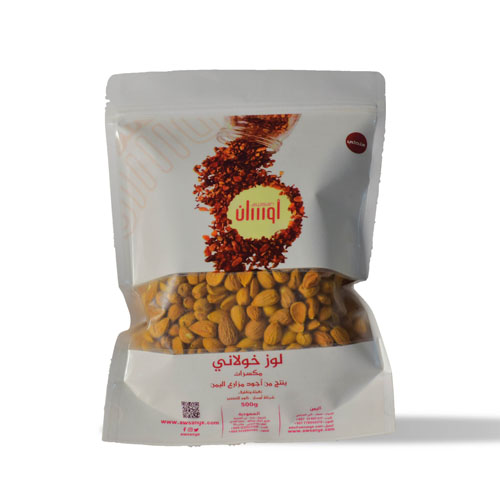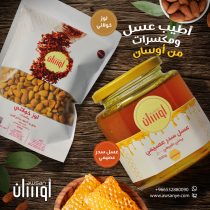Organic Yemeni Almonds: A Natural Treasure from the Mountains of Yemen
Introduction
Organic Yemeni almonds are among the rarest and finest almonds in the world. They combine authentic flavor with exceptional nutritional value. Grown in a pure, chemical-free environment, they are the perfect choice for those who value healthy and natural food.
1. Organic Farming in Yemen’s Natural Environment
These almonds are cultivated in the mountainous regions of Amran, Ibb, and Saada, where the climate is mild and the soil is rich in natural minerals. Yemeni farmers rely on traditional organic farming methods, avoiding pesticides and synthetic fertilizers — ensuring that every almond is 100% natural.
2. Difference Between Organic and Conventional Almonds
- Organic almonds are grown and dried naturally without preservatives or chemicals.
- Conventional almonds may be treated with chemicals to improve appearance or shelf life.
- Organic Yemeni almonds stand out for their rich taste and higher nutritional content.
3. Nutritional Value
Organic Yemeni almonds are packed with essential nutrients such as:
- Vitamin E: A powerful antioxidant that supports skin health and prevents aging.
- Omega-3: Promotes heart and brain health.
- Calcium and Magnesium: Strengthen bones and teeth.
- Dietary Fiber: Improves digestion and helps control weight.
4. Impressive Health Benefits
- Boosts daily energy and vitality.
- Improves memory and focus.
- Lowers bad cholesterol levels (LDL).
- Enhances skin health through natural antioxidants.
- Helps with weight management when consumed moderately.
5. Supporting Yemeni Agriculture
The production of organic almonds is not only about healthy food — it’s also an essential support for Yemeni farmers in mountain regions. This sustainable cultivation helps to:
- Create new job opportunities in rural areas.
- Protect the environment and promote biodiversity.
- Enhance Yemen’s reputation for premium agricultural products worldwide.
6. Best Ways to Enjoy Organic Almonds
Organic almonds can be enjoyed in many ways:
- As a healthy snack between meals.
- Added to desserts, salads, or smoothies.
- Soaked overnight for easier digestion.
- Used to make almond milk or almond flour.



